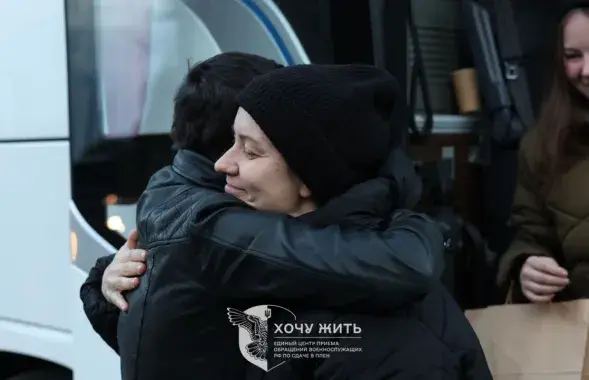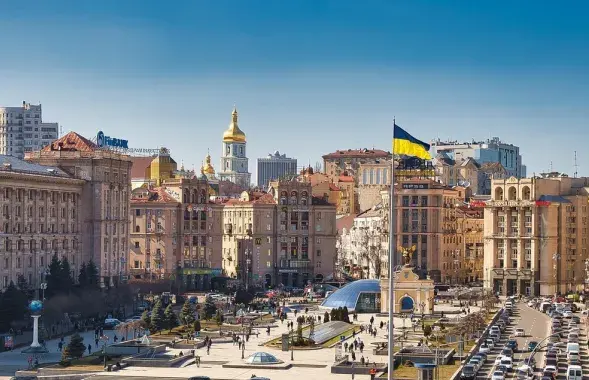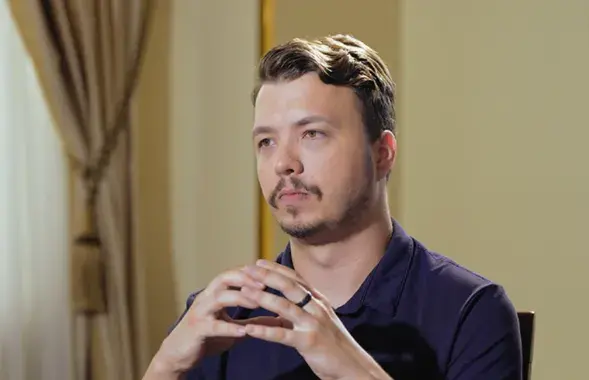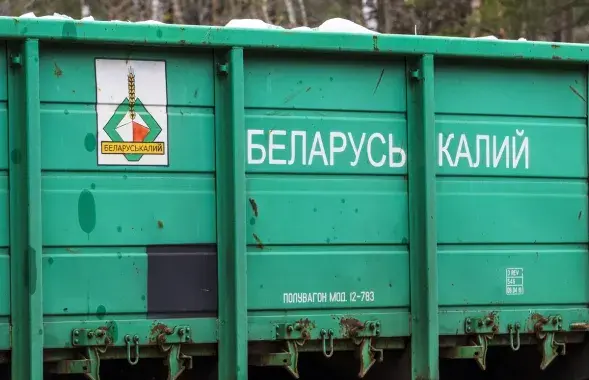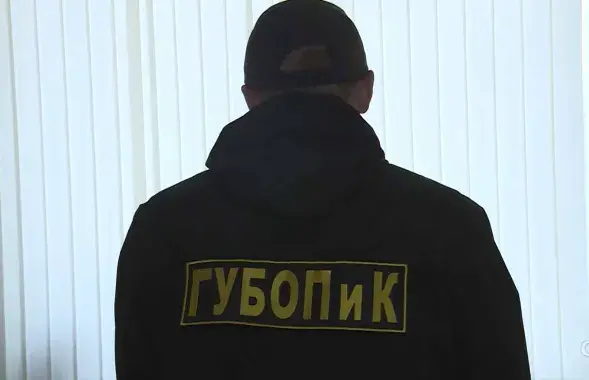Holzapfel: Government’s attitude has not deteriorated because of sanctions
ERB: Mr Holzapfel, you have commenced working after long years of waiting. What will change in relations between EU and Belarus from this moment? What short-term and long-term effects do you foresee?
The fact that we have a representation office in Minsk like in many other countries of the world now can be described as an immediate effect. In this sense, we have eventually received a normal situation in Belarus when we can have better contacts with all the sides: the government, the civil society and other figures of the Belarusian society. This also means that we can develop cooperation and have a better exchange of information on Belarus and on the European Union.
ERB: You mean to have a better exchange of information on Belarus with Brussels?
The aim of the representation office is to make Belarus more known about by Brussels. Vice versa, we will also aim to have people in Belarus know more about the European Union.
ERB: In one of your interviews, you said that the functions of the European Commission’s representation in Minsk will not differ from similar offices in 118 countries of the world. However, not all the countries have such tense relations with the European Commission like Belarus. What are the peculiarities of working in the Belarusian conditions? Will your office have certain mandate restrictions like the OSCE’s office in Minsk?
We have no restrictions in our mandate. Therefore, we operate here just like in any other part of the world. Belarus is on the list of the so-called “neighborhood countries”. That’s why our activities mostly deal with the implementation of the European Neighborhood policy. Because of the situation in Belarus described by several statements of the European Union, our work has specifics. It is aimed at achieving Belarus’s full participation in the neighborhood policy on the basis of the November 2006 document titled “What EU Can Give Belarus”.
ERB: You mean those 12 conditions…
I would not call them ‘conditions’. I would call them items.
ERB: How can you prove that there has been progress in the implementation of these items? In a recent interview with the European Radio for Belarus, David Kramer, a US Deputy Assistance Secretary of State, stressed that the US government and the European Union join efforts in making the Belarusian authorities to free political prisoners. Only after that, some steps in respond would be made… Will your office be entitled to holding talks with the Belarusian authorities on this topic?
Political negotiations of this kind are in the competence of the European Union, not the European Commission. It means that discussions are mainly held at the level of EU member states, especially with the country that holds EU presidency. Therefore, we act collectively in this sphere. However, the position of the Commission is well known. It is reflected in the November 2006 document. On this basis, we can follow the developments in the country and when we can we discuss this with the authorities and other figures in Belarus.
ERB: Does it mean that your office will be just one more voice next to the voices of EU ambassadors heard in Brussels in order to evaluate Belarus developments? Perhaps, you will have more powers?
It is more than yet another voice, because the European Commission is needed in order to realize the principle of dynamism. I would say that our presence will help dynamics and synergy of the European Union regarding Belarus.
ERB: Have you noticed any changes in the attitude of the Belarusian authorities towards your office after the EU extended for one more year the sanctions against several Belarus officials?
We have not noticed any changes. When the decision to extent sanctions was taken on April 7, it was accompanied with the statement of the European Union and the European Commission to explain why and in what contest this decision was taken. We stressed that we would remain open for a progress in relations with Belarus when certain significant steps are made.
ERB: Have the Belarusian authorities met with you after this?
Yes. When I came, I met with the Belarusian officials.
ERB: Did they comment on the sanctions or talk about a possible congress in relations?
Yes. But I can’t elaborate on this, because we usually do not reveal the results of bilateral negotiations to the media.
ERB: What was the level of negotiations?
When my colleague from Brussels Ms Hilde Hardeman came to Minsk last week, we talked with Mr Varanetski, a deputy foreign minister.
ERB: Could you please tell us about the procedure of approving projects in the framework of the neighborhood policy? Where should applications be sent to; what types of projects will be supported or are already being supported?
Little will be changed in the beginning, because our operation at the first stage will be controlled from Kiev. Our office in Minsk will help expedite the procedures, get in contact wit office in Kiev quickly. But the content of cooperation programs will not be changed.
ERB: Can the number of such programs be reduced or increased depending on whether the Belarusian authorities will fulfill 12 proposals from the European Union?
Not all the projects are associated with this issue. For example, we have a good cooperation in trans-border issues, in the field of ecology and energy sector… If we had a situation when Belarus took a full use of the advantages in the framework of the European neighborhood policy, there would certainly be more projects. But even now we have a quite good level of activities.
ERB: Apparently, your office is following the latest political developments in Belarus, including the trial of 14 youth activists or the breaking up of demonstrations and a crackdown on independent media in March…Are you going to approach the Belarusian authorities, asking to explain such concrete issues?
We are indeed following very closely these developments, and that was reflected in EU statements and a press release on March 25 where we stressed the issue of arrests of demonstrators and journalists. Together with all EU countries, we follow what is taking place. But I can’t tell you more, because one of the trials is not over yet, as you know.
ERB: Knowing your common position of the European Union and the European Commission on Belarus, can your office possibly become some sort of a mediator between pro-European, pro-democracy non-governmental initiatives in Belarus and the Belarusian authorities, ensuring that the incidents like in March would not take place in the future?
We raise these issues every time we communicate with the Belarusian authorities on the political level. We also coordinate our position with the heads of missions from EU member countries in Belarus and with Brussels. I think that such initiatives are possible. We discuss that, but I stress that we do it at the EU level.
ERB: What roles can foreign broadcasting projects and independent media in general play in this process? Lately, the Belarusian authorities seem to think that such projects are not needed in Belarus…
I think there is nothing bad in bringing information about the European Union. It would be surprising to hear another judgment from our side. We are happy when information about the European Union is disseminated. We do everything possible to disseminate such information…
We believe that the operation of independent media in Belarus and those who work for Belarus from abroad is necessary, because there is clearly a problem with information in the country. We believe that free media should be supported and we are very positive about that. If those media can give more information about Belarus and the European Union, it is very good.
ERB: You began saying about the informational activity which you provide as the office of the European Commission. Could you tell the listeners of the European Radio for Belarus what an ordinary person could obtain in your office? For example, can I complain to you as a European Commission’s embassy that I have problems getting a German visa? Or, will the office act as an information center where a potential student can get information about studying opportunities in EU countries.
In some fields, we do not have separate competences like visas. This information is possessed by the embassies of EU members. On the other issues, we could be a useful source of information for Belarusians. For example, we have published a new brochure for young people who wish to study abroad. We can also share a huge amount of information on certain programs. There are many other issues where we possess information.
ERB: Will everyone who comes to your office for this information receive it?
Yes and no. We have a very small staff. But even with the restricted possibilities, we can already share something. One would it this way that we will give a maximum of what we have available. With time, we will continue to develop our informational activities.
ERB: Are there concrete actions that the office will support soon in Belarus? The Day of Europe is approaching in May…
We have been here for a very short time. But in the future, we would like very much to make The Day of Europe a significant event. It would be very positive.
Photo by BelaPAN
